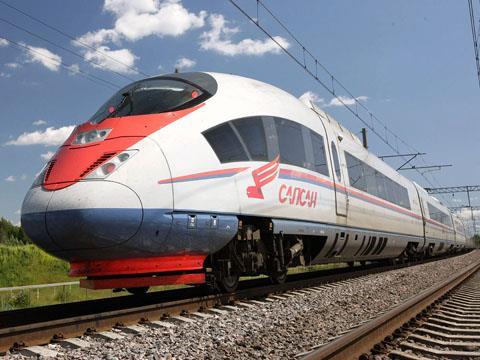
RUSSIA: Proposals for the construction of a 660 km high speed line linking Moscow and St Petersburg were unveiled by Russian Railways at a high-level conference in St Petersburg on April 1. The event was attended by representatives from various state bodies, the Russian scientific and business sectors.
According to High Speed Lines Director Denis Muratov, the Moscow – St Petersburg line would be designed for operation at up to 400 km/h. It would incorporate more than 250 major structures, including tunnels, bridges and viaducts. RZD expects to offer an end-to-end journey time of 2 h 30 min, compared with 3 h 45 min currently being achieved by the Sapsan trains running at up to 250 km/h on the existing route.
RZD President Vladimir Yakunin said the line would be built using a Contract Lifecycle Management model, adding that this would be the first CLM project promoted by RZD and one of the largest such projects in Russia. A public-private company would be established to finance, build and manage the line, recouping its outlay through track access charges or availability payments.
Based on experience elsewhere, Yakunin suggested that the use of CLM and the adoption of European standards would cut the total cost by between 20% and 40%; international financing would be sought for up to 50% of the capital expenditure. At the same time, the model would help to reduce technical risks and provide incentives to ensure that the project was completed on schedule to a high level of quality.
The new line is projected to carry around 14 million passengers per year. Including ‘social effects’, RZD estimates the cumulative net benefit at around 1 500bn roubles, which would offer a benefit-cost ratio of almost 2:1.
The conference included several presentations of recent European experience, given by Jan Ochtman from HSL-Zuid and Jan van Schoonhoven, PPP director at the Ministry of Transport in the Netherlands, Gabriel du Plessis of RFF, Carlos Fernandez, Director of the Lisbon – Madrid project, and Rui Monteiro from the Portuguese Ministry of Finance’s PPP Unit. Yakunin said RZD was keen to learn from ‘this invaluable experience and avoid mistakes, as we will be following the same route that our foreign colleagues have taken’.

















